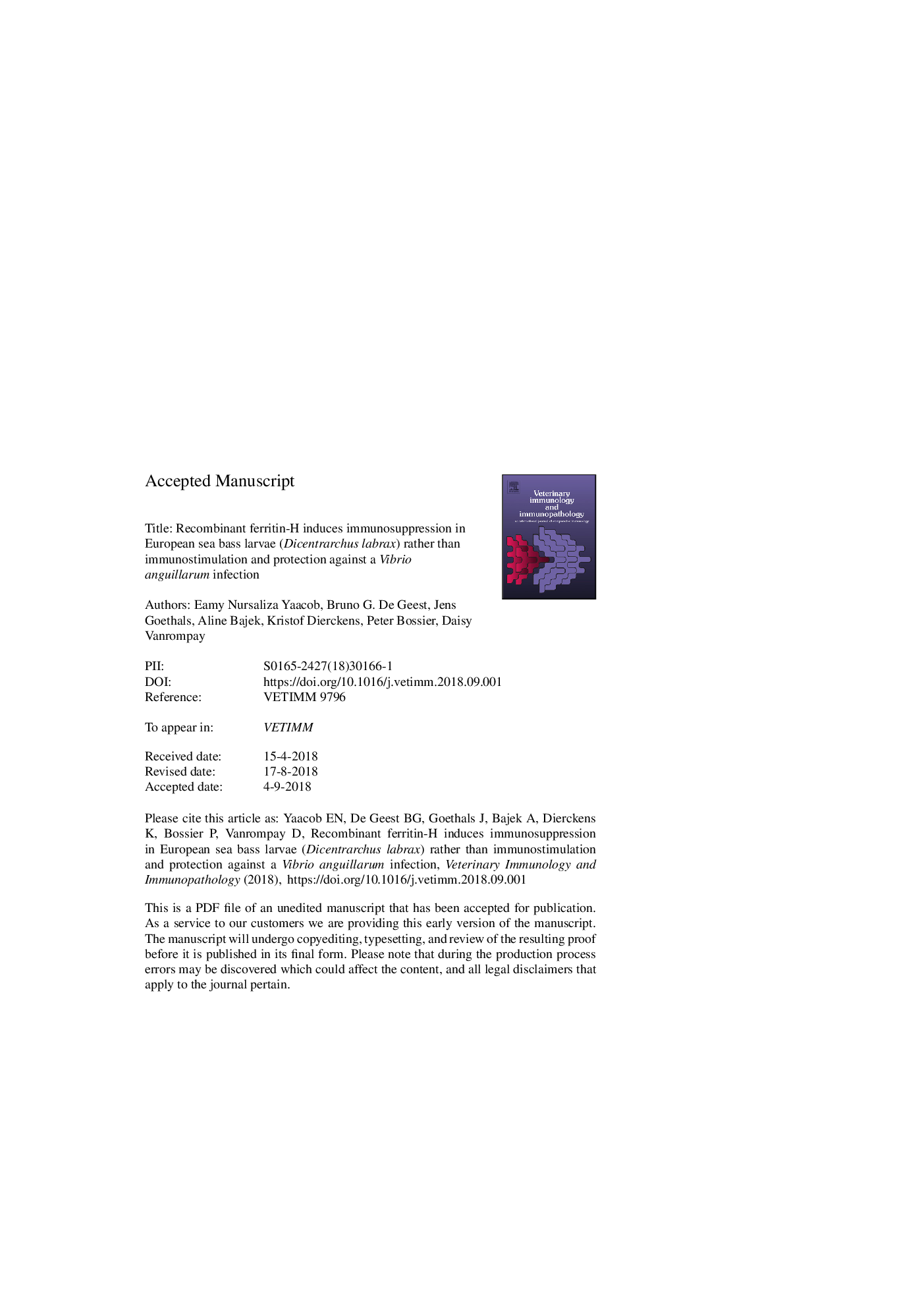| Article ID | Journal | Published Year | Pages | File Type |
|---|---|---|---|---|
| 10158149 | Veterinary Immunology and Immunopathology | 2018 | 44 Pages |
Abstract
Vibrio anguillarum causes high mortality in European sea bass (Dicentrarchus labrax) larviculture. In this study, we evaluated if the recombinant sea bass ferritin-H could stimulate the innate immune system of gnotobiotic European sea bass larvae resulting in protection against a V. anguillarum challenge. We also evaluated the effect of a V. anguillarum infection on the transcription of immune-related genes in gnotobiotic European sea bass larvae. Recombinant sea bass ferritin-H was produced, encapsulated in calcium alginate microparticles and orally delivered to sea bass larvae at seven days after hatching. Our results showed V. anguillarum caused an acute infection, resulting in high mortality. The infection significantly upregulated the expression of tlr3, tlr5, cas1, il1β, tnfα, mif, il10, cc1, cxcl8 at 18, 24 and 36âh post infection, but not of the chemokine receptor genes cxcr4 and ccr9. There was no protective effect of ferritin-H. Remarkably, ferritin-H caused significantly higher transcript levels for cxcr4 and ccr9. Sea bass ferritin-H was more likely involved in immune-suppression and results point in the direction of a negative regulation of CXCR4 resulting in inhibition of cell proliferation, differentiation and migration which is detrimental to innate immunity and might explain the non-protective effect of ferritin-H in fish larvae.
Related Topics
Life Sciences
Agricultural and Biological Sciences
Animal Science and Zoology
Authors
Eamy Nursaliza Yaacob, Bruno G. De Geest, Jens Goethals, Aline Bajek, Kristof Dierckens, Peter Bossier, Daisy Vanrompay,
